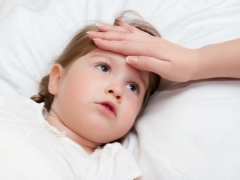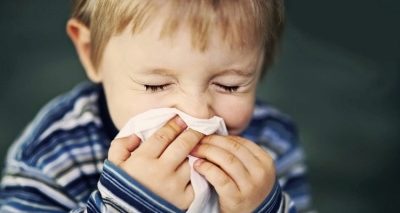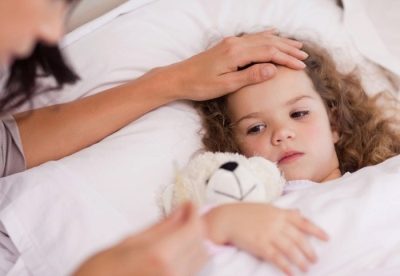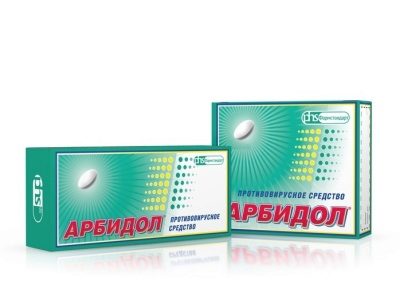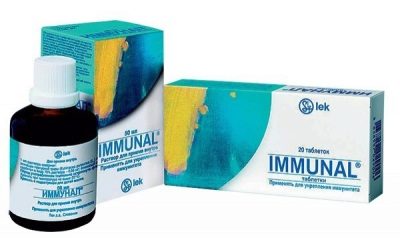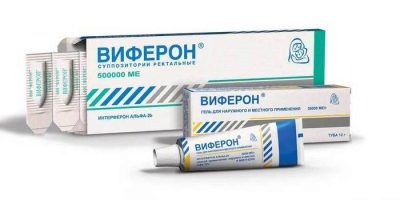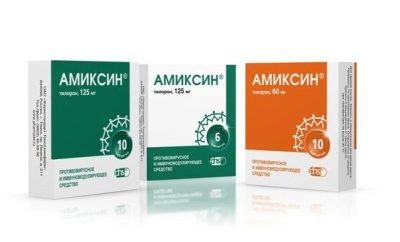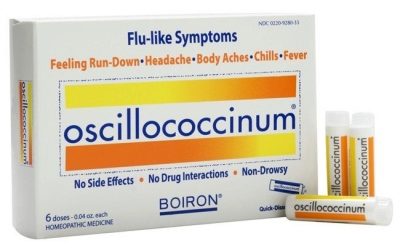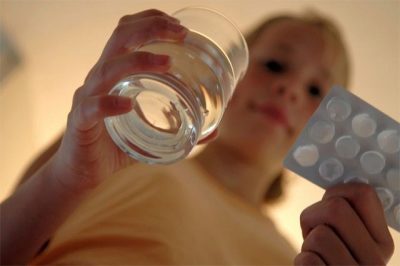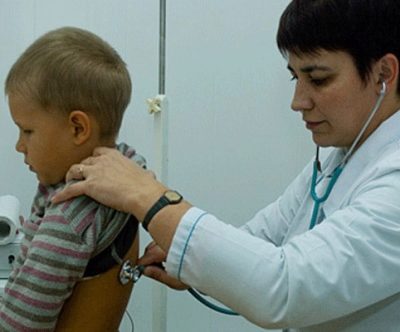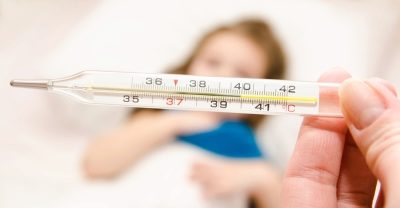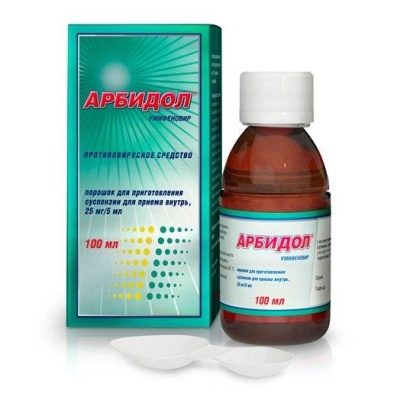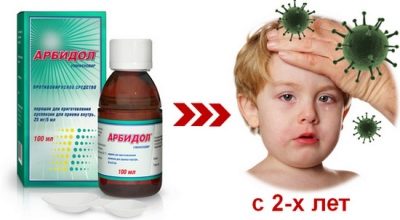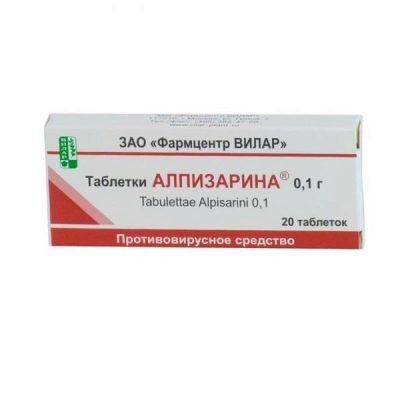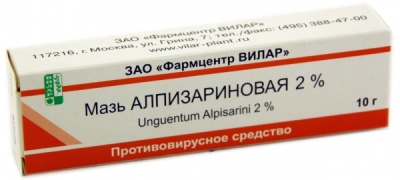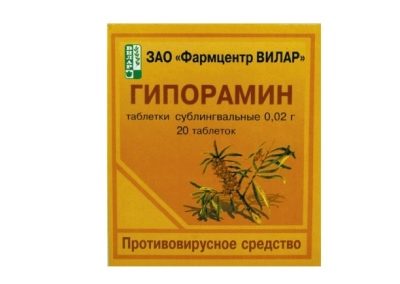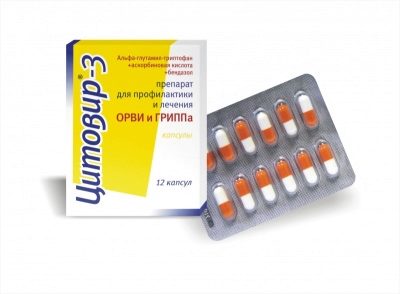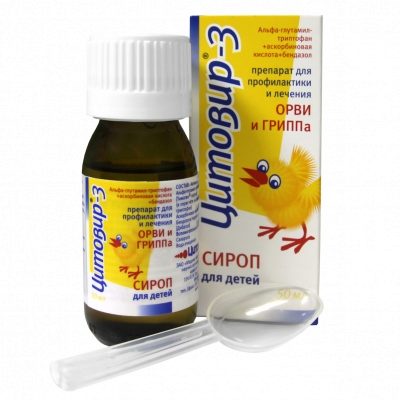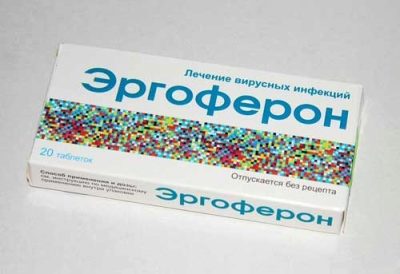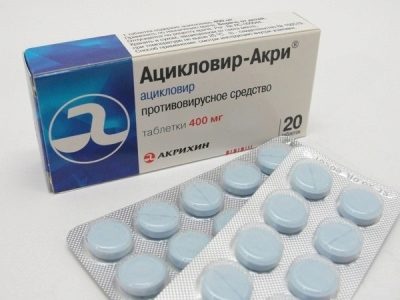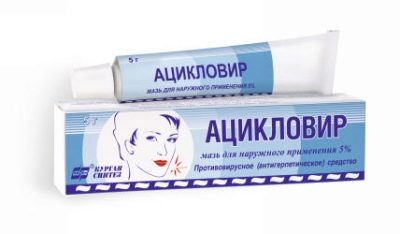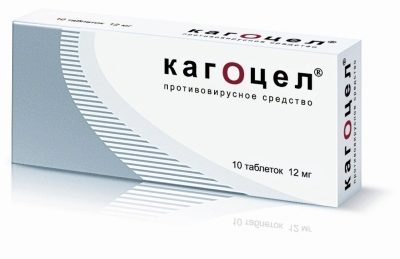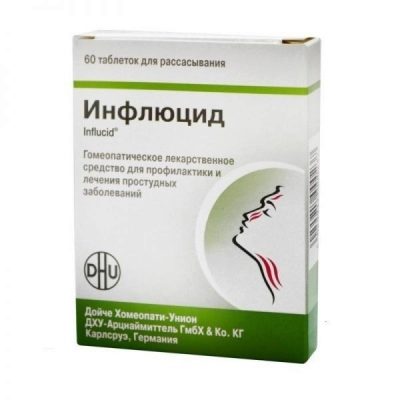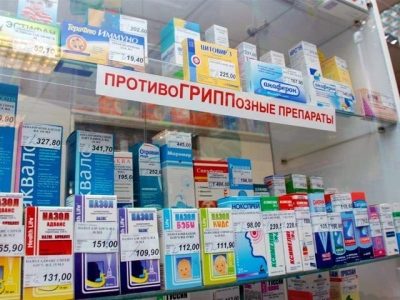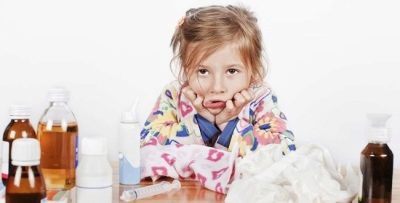Antiviral drugs for children from 3 years
In the offseason, our children get sick more often. Runny nose, reddened throat, fever, cough - all these symptoms are familiar to moms and dads. Ruthless statistics say that 9 cases of such illnesses in children out of 10 are viral infections. Even adults far from medicine have learned well that such “sores” are fraught with serious complications, and therefore they are trying to protect their child with all available means.
To help parents comes a huge range of antiviral drugs that are sold in pharmacies without prescriptions. Here lies the danger. The fact is that Antiviral drugs can also harm the health of the baby, and therefore in no case should not be engaged in the selection of drugs on their own.
If you suspect a viral infection in your three-year-old child, call the doctor at home, you should not storm the offices in the clinic with him, because viral diseases are infectious and can be transmitted to other children.
Children at the age of 3 years are at high risk for probable infections with influenza and ARVI. The thing is that it is at this age that babies begin to attend kindergarten, to visit crowded places. And this is a fertile environment for the spread of viruses. In addition, in 3 years there is a rapid growth of the body, and the immune system is somewhat weakened. Three-year-olds need support, but how to help them?
What antiviral drugs can be used for the treatment and prevention of children from 3 years of age, how to choose inexpensive, but effective and safe children's means for the home first aid kit?
How do viruses work?
To understand how to better protect your child, parents should know exactly how viruses work.
They attack quickly, usually penetrating into the body of the child through the mucous membrane of the nose and throat. Less commonly, the virus enters through the eye membrane and very rarely through the esophagus and stomach. Having initially settled locally, at the point of penetration, viruses, as befits parasites, begin to “rework” healthy cells for themselves, forcing them to provide themselves with a nutrient medium, refusing to perform the basic nature-prescribed functions. The number of diseased cells of the body is growing exponentially. Viral infection develops rapidly.
ARVI is the largest group of diseases caused by viruses. It includes respiratory infections, the "culprits" of which are a variety of pathogens. The result is a completely different types of ailments - rhinovirus, adenoviral, respiratory syncytial, parainfluenza, ordinary flu, atypical influenza, etc.
All of these diagnoses combine common, very unpleasant and painful symptoms - fever, runny nose, cough, sore throat, pain in muscles and joints, general intoxication of the body, and with rotavirus infection also vomiting with diarrhea.
Today, science knows more than 500 viruses, and each of them can trap a child at any time.
Dr. Evgeny Komarovsky expresses an opinion on a viral disease:
How do antiviral drugs work?
Antiviral drugs also act differently.
Chemicals ("Arbidol", "Acyclovir», «RimantadineAnd others) destroy the virus, violate its structure. It is sad that these drugs have a negative effect not only on penetrated viruses, but also on the child’s whole body. That is why, without the advice of a doctor, you should not take such medicines.
Immunity stimulants (such as "Immunal», «Imudon», «Bronhomunal"," Alpizarin ","Derinat"And others.)" Spur "the child's immunity against unauthorized invasion, have an immunomodulatory and immunostimulating effect. Reception of immunostimulants is not approved by many experts, including the famous doctor Komarovsky. After all, the child’s immunity must learn to independently confront various threats from the outside, and with frequent use of immunomodulating drugs, he begins to be “lazy” and the child becomes painful, he suffers all the infections much harder than his peers.
Interferons ("Viferon", "Anaferon", "Kipferon"," IRS-19 "and others) deliver a dose of interferon protein into the child’s body, which was genetically engineered from donated blood cells and animal cells. He "rushes" in the fight against viruses. However, this group of drugs sometimes causes severe side effects.
Endogenous Interferon Inductors (such means as "Amizon", "Amiksin"," Cycloferon "and others.) Stimulate the children's body to produce its own protein interferon, which is very important for defeating viruses.
Homeopathic remedies (such as "Influcid», «Viburcol», «Oscillococcinum"And others.) Stimulate the immune system, increase its resistance to the effects of the virus. The use of homeopathic remedies causes a lot of controversy, and traditional medicine looks at such remedies somewhat disdainfully. They do not cause harm, have almost no contraindications and side effects, but the benefits of their use have not yet been experimentally proven, and therefore cause reasonable doubts.
However, patient feedback on homeopathic antivirals is quite positive, many argue that it was these drugs that helped beat the flu. Doctors suggest that the secret to a quick recovery for treatment with homeopathy alone may lie in the placebo effect.
The mechanism of action of antiviral drugs is also different: some prevent the virus from entering the cell and leaving a copy of the virus from the body, others adversely affect the reproductive ability of viruses, third - activate leukocytes for a decisive battle, the fourth themselves destroy the structure of the virus.
Some drugs are aimed at specific viruses and their strains. But more commonly used antiviral agents with a broad spectrum of action, which are able to cope with most known viruses.
Indications
Antiviral drugs for children from 3 years can be used as a means of treatment. viral infections, herpes, flu, shingles, mononucleosis, intestinal infection (rotavirus) and other unpleasant ailments, and as a means of prevention many seasonal infectious diseases.
In addition, antiviral agents can be used as an immunostimulating factor if there is a need to artificially increase the natural defenses of the baby’s body if its own immunity is weakened for some reason. Not to notice this can not be.
If a child is sick more than 5-6 times a year, if he often has allergic reactions, any infection from a banal cold to purulent tonsillitis literally “sticks” to him, if the crumbs are ill, it can be said that the child’s immunity weak.In more detail about it it is possible to find out if to make an immunogram.
Remember that antiviral drugs provide the maximum effect during prophylactic use. When the flu virus has already penetrated and started its “odyssey” on the children's body, any medications are not so effective, and you need to rely on immunity.
How to determine what kind of infection in a child, see the video:
Immunity stimulants are best not to give without a doctor's prescription. Children who have close relatives who suffer from oncology or diseases of the immune system are not recommended to give such drugs at all.
Hemeopathic remedies also should not be chosen and dispensed independently. Of course, their effectiveness is not proven, but you do not want to set up experiments and prove something yourself, risking the health of your own child?
Chemical antivirals have side effects. Objectively and professionally, only the doctor is able to weigh the benefits of their use and possible harm to the child.
It is better to start the prophylactic administration of antiviral drugs during periods of increased incidence.
Of course, it’s not worth waiting for an epidemic, but you don’t need to hurry to feed your child with pills and capsules “just in case” either. Prevention requires a balanced and reasonable approach. To give antiviral it is necessary only when infected people have appeared in a child with a weak immunity. remember, that prophylactic doses of drugs should be half the therapeutic!
Rationality of application
An unforgivable parental crime is to grab antiviral packaging every time the baby has a fever or a runny nose. A child, even if he is overtaken by a cunning and evil virus, must be given a chance to defeat the “invader” on his own. The heat is a completely normal process. Shoot it down is not necessary. Just provide your baby with plenty of warm drink, fresh air in the room where he is, bed rest and watch.
The need for antiviral medication may arise in some cases:
- At high temperatures. If the heat of your three year old toddler is at 39 degrees for 4 days already. The control is considered the third day. The temperature of 38 degrees a three-year-old child does not need to shoot down! With such indications of the thermometer, treatment with medicines begins after three days of heat for newborns and children of the first year of life.
- With severe intoxication of the body. If the child is lethargic, inactive, he is sick, he has vomiting and loose stools.
- In severe viral infections. The severity of the disease is able to assess the doctor. For parents, any discomfort of the beloved toddler is seen as a terrible and complex ailment.
List of popular tools
Arbidol
Tablets and capsules that differ in "adult" and "child" dosages. From 3 years old it is possible to use tablets containing 50 mg of active substance. Arbidol "specializes" in influenza A and B viruses. But it copes well with the coronavirus and is also used for rotavirus (the same "intestinal flu"). It is noticed that taking Arbidol to a certain extent reduces the risk of complications. His doctor may advise in the treatment of conditions that have already been complicated by pneumonia, bronchitis, as well as for herpes infection.
Arbidol has a moderate effect on immunity. The drug is low toxic. For prevention, children from 3 years can take 1 tablet per day (50 mg.). During periods of universal morbidity - this number can be increased to two tablets (one twice a day). For medicinal purposes, if the child is already sick with the flu, he will need to give 1 tablet with a dosage of 50 mg. 4 times a day (every 6 hours).The same dosage and frequency of administration will be prescribed for rotavirus.
The duration of prophylactic administration is 14 days, treatment is 5 days.
Alpizarin
Alpizarin ointment and tablets can also be given to children over the age of three. Children younger than this drug is contraindicated. An immunomodulator with antiviral and small antibacterial effects is of plant origin. It is obtained from the grass of kopeck. But despite its phytobasic, Alpizarin ointment does not cause allergies at all. The ointment is used in the treatment of herpes simplex, shingles, warts. She can smear pock with chickenpox and versicolor.
Alpizarin tablets in rare cases can cause vomiting and diarrhea. With a viral infection when administered to children at the age of 3 years, you can give half a tablet or a whole tablet three times a day. Ointment (2%, not to be confused with 5% - adult ointment!) Is used exclusively externally, on the affected skin 4 times a day. To achieve a greater effect is usually prescribed ointment and tablets at the same time. The course of treatment with Alpizarin averages from 1 to 3 weeks.
Hyporamine
Rectal suppositories, pills, ointment and water solution for inhalation Hyporamine can be selected for any occasion. The variety of dosage forms allows it. This antiviral drug is of plant origin - made on the basis of sea buckthorn leaf extract. The drug acts only on viruses, without exerting any influence on the immune system. Hyporamine helps produce interferons. This makes the drug quite popular in the treatment and prevention of influenza viruses A and B, parainfluenza, cytomegalovirus infection, herpes, ARVI. Hyporamine is prescribed for sore throat that has developed on the background of ARVI or ORZ.
Doctors recommend taking the drug at the earliest stage of the disease. With the flu, ARVI for children of three years is recommended to take half a tablet for 3-5 days. Keep the medicine under the tongue until dissolved. When herpes and chickenpox use ointment. Rectal suppositories can be used 1-2 times a day, depending on the severity of the infection. The concentration of the solution for inhalation in viral respiratory diseases for children from 3 years old is 0.1%.
Flacozide
Antiviral drug of plant origin inhibits the ability of viruses to multiply. True, the spectrum of Flacosidum is not too large - it affects the herpes simplex viruses, measles, chicken pox. Sometimes prescribed for hepatitis A and B. The drug should not be given to children with liver disease. The relative inconvenience of using the drug is that it is available only in pills, and the three-year-old still has to be persuaded to drink them! Children from 3 to 5 years You can give 0.05-0.1, three times a day. Herpes with this dosage is treated from 5 to 14 days, chickenpox a little more than a week (7-10 days), viral hepatitis A and B - 2-3 weeks.
Tsitovir-3
Immunomodulator, which contributes to the development of its own interferons in the child's body. It can be used with as a means to normalize weakened immunity, leveling the so-called "immune status". Ascorbic acid, which is part of the drug, provides a light anti-inflammatory effect. Tsitovir is used for the prevention of influenza and ARVI. If the drug has to be taken after the disease has begun, it should be done only in the early stages, otherwise the medicine will not be effective. In pharmacies Tsitovir-3 can be found in the form of a syrup, in capsules or in the form of a dry powder from which you can independently prepare a solution for drinking.
Take the medicine you need half an hour before meals. For therapeutic purposes, children from 3 to 6 years old give 4 ml. syrup three times a day. For prophylactic purposes, this dose can be halved. The duration of prophylaxis is 4 days; it is possible to repeat the course during periods of massive increase in incidence every 3 weeks.The duration of the drug in the treatment of early stages of influenza is about 7 days.
Tsitovir has side effects, which are indicated in the instructions for use. In addition, the drug is not recommended for children with muscle hypertonus, thrombophlebitis. Syrup is not suitable for children with diabetes.
Ergoferon
There is evidence that Ergoferon reduces the risk of complications in viral infections. If given before or after vaccination, it increases the effectiveness of the vaccine. A good tool for the prevention of SARS, not associated with the flu. Ergoferon contains antibodies to human gamma interferon. The pharmacokinetics of the drug has not been studied, since the doses of substances in Ergoferon are extremely small, they are almost homeopathic. Available in the form of pills, which quickly dissolve if they put under the tongue. If children under 3 years old, such tablets are dissolved in water before use, then from the age of three, Ergoferon can be given in its original form.
As soon as the child has the first signs of a viral infection, you can begin treatment with this tool. First, dissolve the tablets every half hour - the first two hours, and then three more doses during the day. Then take 1 tablet three times a day until recovery.
Preventive dose - 1-2 tablets per day.
Acyclovir
Antiviral agent, especially effective against the herpes virus. Able to accumulate in cells that have already hit the virus. When herpes zoster have a small analgesic effect. Equally powerfully affects both patients with normal immunity, and those who suffer from HIV (immunodeficiency). Use Acyclovir can be inside and out. It is available in tablets, ointments, separately - in the form of an eye ointment and in the form of a dry substance for injections.
Most often, children with herpes are prescribed ointment. When treating chickenpox to babies from 3 to 6 years old, a dose of 400 mg is prescribed. drug (in tablets) four times a day. The same dosage will be assigned to the child in the treatment of shingles. Children up to 3 years Acyclovir contraindicated because the drug has a large list of contraindications and side effects, including seizures, hallucinations, the occurrence of shortness of breath, headache, vomiting and loose stools.
Kagocel
Antiviral agent that contributes to the development of interferon in almost all cells that are involved in the body's immune response to the penetration of the virus into it. Strongest action Kagocel will have if you start taking it no later than 4 days from the start of an acute viral infection.
Released Kagocel only in pills. This medicine is not recommended for children under 3 years old. For the treatment of already accomplished flu and various acute respiratory viral infections, the following scheme is used: the first two days, 1 tablet twice a day, for the next two days, the dose is reduced twice. For preventive purposes, the medication for children from 3 to 6 years old “Kagocel” is given in weekly cycles - two days, 1 tablet once a day, then a five-day break. After a pause, the scheme should be repeated. This technique can be stretched for several months.
Engystol
This homeopathic drug with an immunomodulatory and pronounced antiviral effect is usually prescribed as an adjunct in therapy. According to some reports Engystol relieves influenza fever, headache, and runny nose symptoms during viral infection. Engystol tablets dissolve easily under the tongue. In other forms, the drug is not available. Children under 3 years of age are contraindicated. For three-year-old children, it is obligatory to consult a doctor before taking Engystol. With the flu, it is recommended to take 1 tablet three times a day. It is necessary to dissolve the drug either half an hour before a meal, or an hour after a meal.
Influcid
These homeopathic pills are often given to children from 3 years old with a cold, flu, and also with bronchitis and sore throat. This drug is not antiviral, but it helps to strengthen the immune defenses of the child’s body, without putting strong pressure on the immune system. Influcid - the solution is used as nasal drops for the prevention and treatment of viral infections.
In addition to the considered drugs for children from 3 years can be purchased in a home first aid kitImupret"Syrup"Orvirem"Candles"Viferon", A homeopathic drug"Oscillococcinum", An excellent means of prevention -"Oxolinic ointment", And"Isoprinosine».
Drug prices
Domestic-produced antiviral drugs are more affordable than foreign counterparts. Why analogs? Yes, because most antiviral drugs consist of the same components and differ only in name and price tag. Specialists often recommend foreign rather expensive drugs, but almost everyone has several cheap Russian analogues.
As a rule, widely advertised products are more expensive, because manufacturers need to recoup the cost of an advertising campaign. Do not hesitate to ask the doctors and pharmacists in pharmacies about the availability of cheaper drugs, the action of which is similar to the prescribed drug.
General recommendations for the use of antiviral agents
- Combine taking antiviral drugs preferably with vitamins.
- At the time of treatment it is necessary to review the nutrition of the child. The diet should be saturated with meat, vegetables and fruits, milk and dairy products. The treatment of a viral infection also requires a lot of drinking to avoid the intoxication of the child’s body.
- The maximum is to use traditional medicine with antiviral effect - onion juice, garlic, black radish with honey, wild rose. Immunostimulating plants - coltsfoot and nettle.
- When coughing in a three-year-old child with caution you need to do inhalation with antiviral agents. Procedures should be applied only as prescribed by a doctor, so as not to harm the child. Inhalation should be done exclusively with the use of the device - nebulizer.
- In case of an intestinal infection with all its “charms” - with vomiting, with diarrhea, taking antiviral agents should be combined with antidiarrheal drugs and formulations that allow you to restore the water-salt balance, since the children's body can very quickly become dehydrated.
Against viruses by the Komarovsky method
From the point of view of the famous pediatrician Yevgeny Komarovsky, whom millions of Internet moms listen to, viral infection in a three-year-old child most often does not require medication at all. It is at this age that immunity is formed, and it will be good if he is “acquainted” with all the threats from the outside without intermediaries, which are antiviral drugs.
But in certain cases, with a severe course of infection, with complications, tablets and syrups are indispensable. Yevgeny Komarovsky emphasizes that self-prescribing drugs in this case, whether antiviral or antibacterial drugs, is unacceptable. Only a doctor will be able to figure out which infection — viral or bacterial — struck the child, and prescribe an effective drug.
The full version of Dr. Komarovsky’s program on antiviral drugs is presented below:
